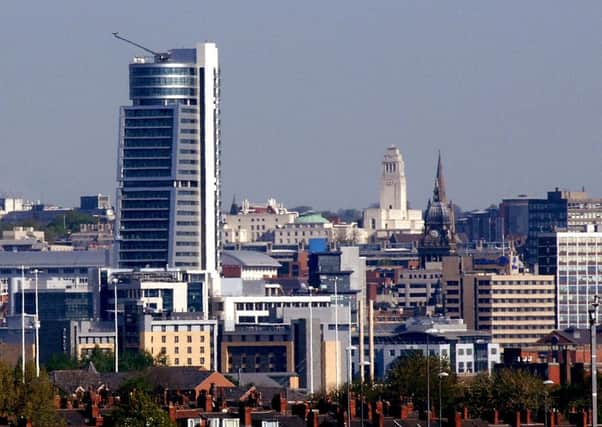Private sector pay holds region back


It is the region’s private sector where pay is particularly distressed. A one per cent deflection in wage growth over the last year shows the challenge faced in establishing a Northern Powerhouse driven by private sector growth.
Evidence of a growing North-South pay divide comes from figures which show that over the last year, average annual pay in Yorkshire fell by 0.8 per cent, compared to a 0.6 per cent increase across the UK.
Advertisement
Hide AdAdvertisement
Hide AdAt £29,000, average full-time annual pay in Yorkshire was £4,500 less than the UK average of £33,500.
Workers in Leeds are the best paid of all the North’s major cities - earning on average £30,600 - although employment paid best in the Selby district (£32,600), followed by Harrogate (£31,800).
But there is a wide disparity across the region, with lowest average wages paid to people living in Hull (£24,300) and in Bradford, Wakefield and Ryedale (all £27,000).
Amanda White, operations manager at Manpower Group, which analysed figures from the Office for National Statistics before publishing today its new ‘Pay League’ research, said: “Despite the current rhetoric around the Northern Powerhouse and the drive to make Yorkshire and the Humber thrive, pay in the region is heading in the wrong direction and outside of Leeds many of our cities are lagging behind their counterparts elsewhere in the north of England.
Advertisement
Hide AdAdvertisement
Hide Ad“It’s vital our region creates more and better-paid private sector jobs, so investment is more urgent than ever.”
Labour councillor Mohammed Rafique, Leeds City Council’s executive member for employment, said Leeds was fast becoming the “northern capital”, but the bigger picture was more worrying.
He said: “Clearly there is a disparity if you look at the south east and the northern cities, and the investment in key areas like transport infrastructure and skills from the Government, and other areas such as development, we’re still lagging behind and that’s something for the Government to consider. They need to help close the gap between the North and South and make sure vital public services will get that cash injection.”
Council leaders told The Yorkshire Post they were focused on creating better paid jobs.
Advertisement
Hide AdAdvertisement
Hide AdCoun Linda Cowling, Conservative leader of Ryedale District Council, said: “We have a strong engineering base in Ryedale and we’re trying to attract more businesses, and in the bio-economy as well. With that, we hope will come quality jobs.”
She added that the North-South wage gap was worrying but the figures did not offer a measure of quality of life, with the cost of living in the South comparatively much higher.
The average working Rotherham resident earns £27,700 and Rotherham Council’s Labour leader Chris Read said: “All council leaders will tell you they’re trying to bring in better paid jobs and in Rotherham we are particularly proud of the advanced manufacturing park which extends across the border with Sheffield, and which we hope we can use as a model for the next generation of workers.
“Having said that we are having to cope with the loss of major employers such as Tata and that is a real challenge for people at the other end of the wage scale.
Advertisement
Hide AdAdvertisement
Hide Ad“As a council we are a living wage employer and I’d encourage private sector employers to create that minimum threshold.”
Six of the top nine areas for best paid households in the region are in North Yorkshire.
Tory councillor Chris Metcalfe, executive member for economic development at North Yorkshire County Council, said there is a move away from the area’s traditional reliance on agriculture and tourism.
“There is a fundamental shift in approach, as we will see as York Potash starts to come online with production. The technical knowledge required for that will mean people will have opportunities to improve themselves and take high paid jobs.”
Advertisement
Hide AdAdvertisement
Hide AdThe Manpower research found that the region’s manufacturing sector was most buoyant, achieving full-time pay growth of 3.2 per cent, well above the national average, while the pay gap between the region’s men and women is closing. Women saw their pay rise by 1.1 per cent last year whereas men’s pay fell by 1.3 per cent.